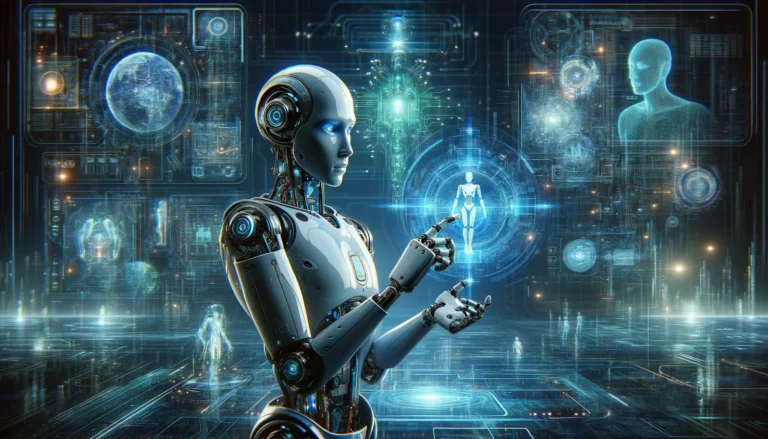
AI & Robotics
Exploring Industrial AI & Robotics Jobs: The Future of Automation and Innovation
As the industrial sector embraces the Fourth Industrial Revolution, the integration of Artificial Intelligence (AI) and Robotics is reshaping the workforce. With automation becoming a central theme in manufacturing, logistics, and other industries, new career opportunities are emerging. For professionals in engineering, tech, and design, now is the time to explore the burgeoning field of Industrial AI & Robotics.
The Rise of AI & Robotics in Industry
Industrial AI and Robotics refer to the use of intelligent machines and algorithms to optimize production processes, enhance decision-making, and ensure safety across operations. From automated assembly lines to intelligent predictive maintenance systems, AI and Robotics are helping industries achieve higher efficiency, reduced costs, and improved precision.
Industries like automotive manufacturing, logistics, healthcare, and even agriculture are incorporating advanced robotics to streamline operations and improve overall productivity. This growth is creating an unprecedented demand for skilled workers who can develop, implement, and manage these technologies.
Types of Jobs in Industrial AI & Robotics
-
AI and Machine Learning Engineers
- Focus: Designing algorithms and AI systems that can interpret data, make decisions, and learn from experience.
- Skills Needed: Expertise in programming languages (Python, C++, Java), deep learning, data analytics, and neural networks.
-
Robotics Engineers
- Focus: Designing, building, and testing robots that perform automated tasks in various industrial applications.
- Skills Needed: Strong knowledge of mechanical, electrical, and software engineering, along with proficiency in CAD software and programming languages like C++ and ROS (Robot Operating System).
-
Automation Specialists
- Focus: Implementing automated systems to improve efficiency in industrial processes, from assembly lines to quality control.
- Skills Needed: Experience with PLC (Programmable Logic Controllers), industrial robotics, and SCADA systems.
-
Data Scientists & Analysts
- Focus: Analyzing large datasets to extract meaningful insights for improving automation and decision-making.
- Skills Needed: Statistical analysis, programming in R or Python, machine learning, and data visualization tools.
-
AI Product Managers
- Focus: Overseeing the development and deployment of AI-based solutions and ensuring they align with business needs.
- Skills Needed: A mix of technical expertise and business acumen, with proficiency in AI project management and product lifecycle management.
-
Industrial IoT (IIoT) Engineers
- Focus: Integrating AI and robotics into Internet of Things (IoT) ecosystems, enabling machines to communicate and optimize operations.
- Skills Needed: Expertise in IoT platforms, cloud computing, and connectivity protocols like MQTT and OPC-UA.
-
Maintenance Technicians for Robots
- Focus: Ensuring that industrial robots and AI systems function optimally through regular maintenance, troubleshooting, and repairs.
- Skills Needed: Mechanical, electrical, and software repair skills, with the ability to work with both hardware and software components of robotic systems.
How to Prepare for Careers in AI & Robotics
As the demand for industrial AI and robotics professionals grows, so do the educational opportunities. Here are some steps to get started:
- Education & Certifications: Degrees in engineering, computer science, or data science provide a strong foundation. Specialized certifications in AI, robotics, or automation can make you stand out in the job market.
- Hands-on Experience: Internships and projects focused on AI or robotics provide practical experience that employers value. Participate in competitions like FIRST Robotics or hackathons to build a portfolio.
- Stay Updated: The field of AI and robotics is rapidly evolving. Staying current with the latest technologies and tools is crucial. Attend industry conferences, take online courses, or join professional organizations like IEEE Robotics and Automation Society.
The Future Outlook
The future of industrial AI and robotics looks incredibly promising. According to the World Economic Forum, automation and AI are expected to create 133 million new jobs globally by 2025, while simultaneously displacing 75 million jobs. As automation grows in complexity, the demand for skilled professionals will only increase.
This surge in job opportunities will be accompanied by significant advancements in AI and robotics, pushing industries to adopt more autonomous and intelligent systems. Professionals in the field will play a crucial role in ensuring that these systems are designed, developed, and maintained to meet the needs of an ever-evolving market.
Why Sharaa Group is Your Partner in Industrial AI & Robotics Careers
At Sharaa Group, we understand the transformative potential of industrial AI and robotics. Whether you're looking to start your career or advance in the field, we provide resources and expertise to help you stay ahead of the curve. Our commitment to innovation and industry leadership makes us a valuable partner for professionals seeking to thrive in this exciting field.

